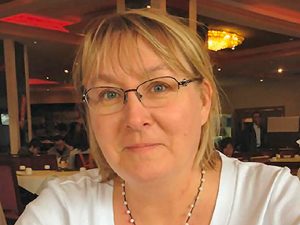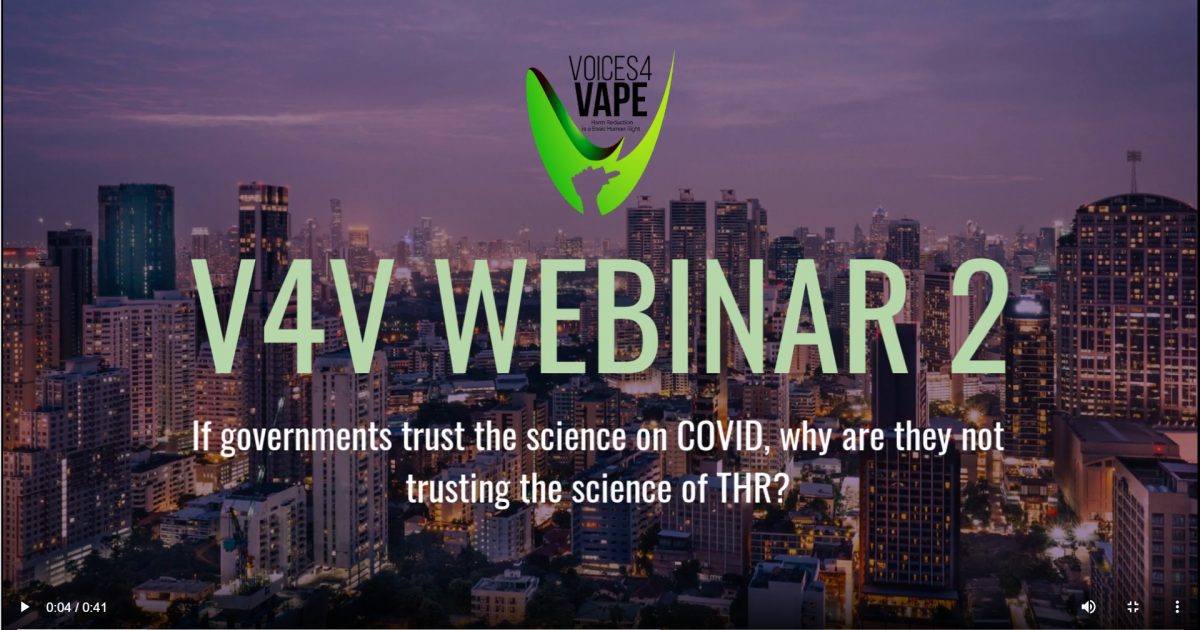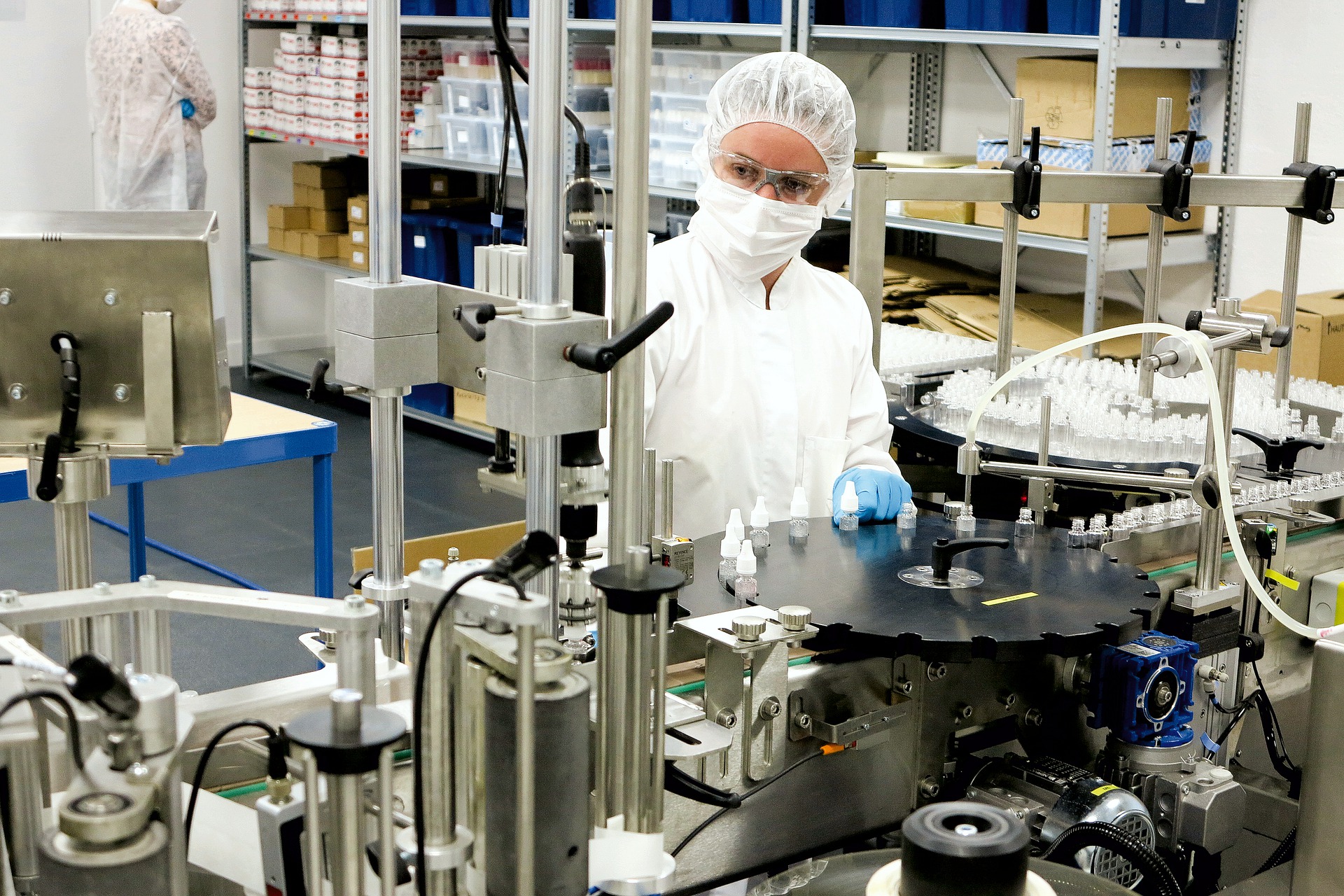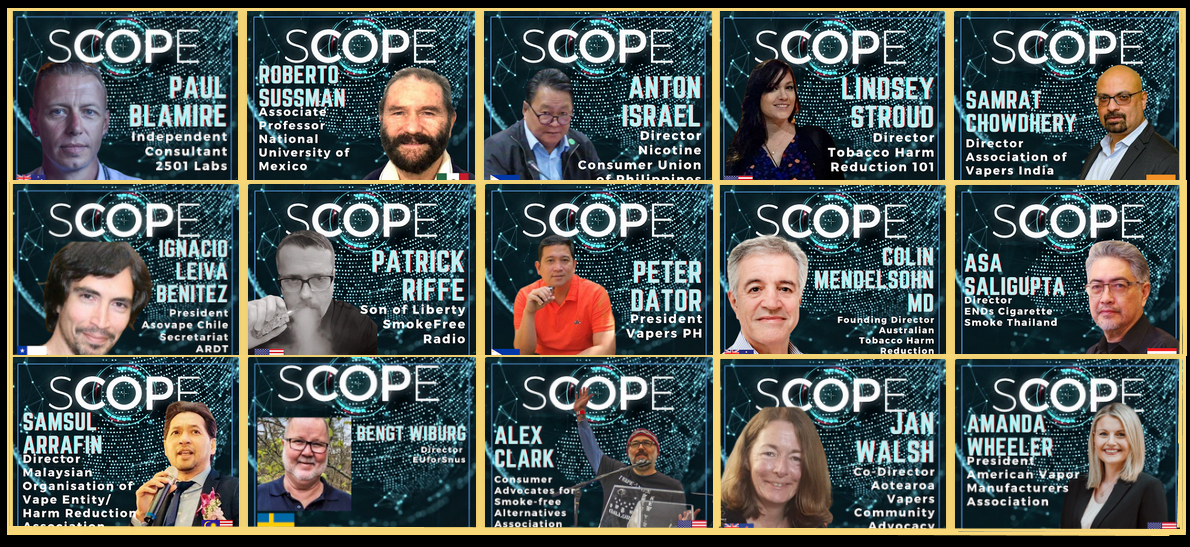 Consumers and advocates of safer nicotine products in the Asia-Pacific region will tackle the need for effective public health policy to address the smoking epidemic using the same science and principle to contain Covid-19 in an online seminar to be held on 21 March 2021.
Consumers and advocates of safer nicotine products in the Asia-Pacific region will tackle the need for effective public health policy to address the smoking epidemic using the same science and principle to contain Covid-19 in an online seminar to be held on 21 March 2021.
The Coalition of Asia Pacific Tobacco Harm Reduction Advocates (CAPHRA) and other consumer advocacy groups are holding the 2021 Voices4Vape webinar at 1 p.m. to 3 p.m. (HKT) with discussions mainly revolving around the question, “If governments trust the science on COVID, why are they not trusting the science of THR?”
“The Covid-19 pandemic has focused global attention on the need for rational measures to reduce risks, effectively treat those afflicted and develop vaccines. This is entirely consistent with longstanding public health goals of reducing risks wherever they are found, and the importance of empowering people to improve their health,” said Nancy Loucas, Executive Director of CAPHRA (pictured right/top).
“If governments trust the science on COVID, why are they not trusting the science of THR?” asked Loucas, referring to tobacco harm reduction which involves the use of less harmful alternatives to combustible cigarettes such as e-cigarettes, heated tobacco products, and snus.
Harm reduction is a strategy being employed by health authorities around the world to protect the population from coronavirus. This involves the use of face masks, social distancing, regular washing of hands, and other health protocols to mitigate the possibility of contracting the virus.
Julie Woessner (at right), a retired lawyer and interim Secretary-General of the International Network of Nicotine Consumer Organisations (INNCO), will discuss how users of safer nicotine products are being attacked, disenfranchised, and bullied by traditional tobacco controllers, and self-righteous health “experts”.
 Woessner will also elaborate on how science is being pushed aside for propaganda by powerful financial interest groups such as Bloomberg Philanthropies which is known for its prohibitionist but ineffective advocacies that take away the rights of consumers to choose better alternatives for themselves.
Woessner will also elaborate on how science is being pushed aside for propaganda by powerful financial interest groups such as Bloomberg Philanthropies which is known for its prohibitionist but ineffective advocacies that take away the rights of consumers to choose better alternatives for themselves.
Aside from Loucas and Woessner, Jena Fetalino, a public relations practitioner, will discuss how to counteract the attacks on science in public discussion.
Ms Fetalino (pictured, bottom right) will provide insights on how to bring accurate news and information to the mainstream media and to society at large. She will share the best way for consumers to obtain the attention of journalists despite the tendency of some to promote half-truths and sensationalized articles to garner “clicks” and page hits in the age of digital media.
“Journalists have a responsibility to be objective which means they have to present both sides of the coin. The challenge for PR practitioners like me is to provide the other side of the coin, supported by scientific evidence,” Fetalino said.
Some 5 million adults vape across Asia-Pacific, with most of them being former smokers who have either quit smoking completely or have cut down significantly using their preferred devices and liquids. “In almost every case, they did so against the advice and in defiance of the highly restrictive, disproportionate regulations and bans that continue to be imposed on safer products,” Loucas said.
 Loucas said that while the smoking and unsafe tobacco use pandemic has been going on for at least 50 years, and claims 20,000 people per day globally, it rages on despite being something that can be easily addressed through effective public health policy.
Loucas said that while the smoking and unsafe tobacco use pandemic has been going on for at least 50 years, and claims 20,000 people per day globally, it rages on despite being something that can be easily addressed through effective public health policy.
Another part of the webinar is the launch of a campaign for petition signatures to be presented to the delegates of the World Health Organisation Framework Convention of Tobacco Control (WHO FCTC) which is having its biennial meeting this November to propose new guidelines on combating smoking. The petition is available at Sign the Petition – https://www.change.org/p/smokers-vaping





